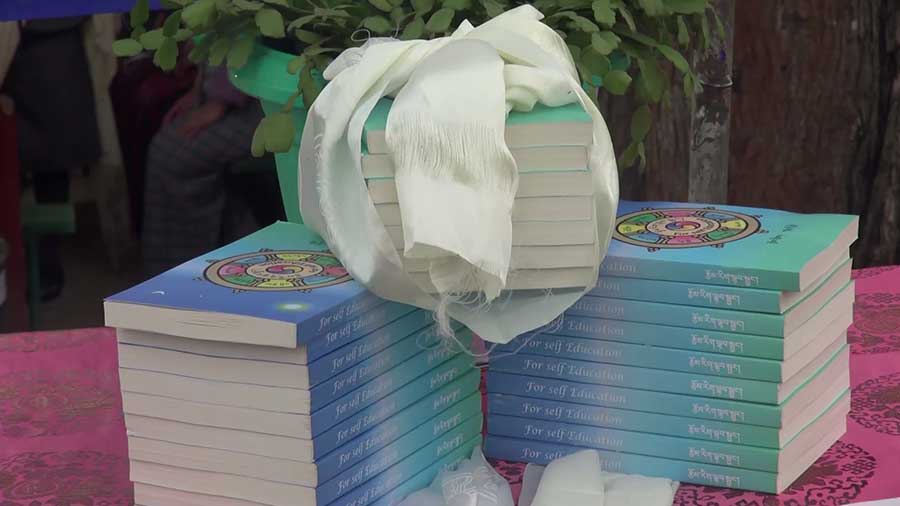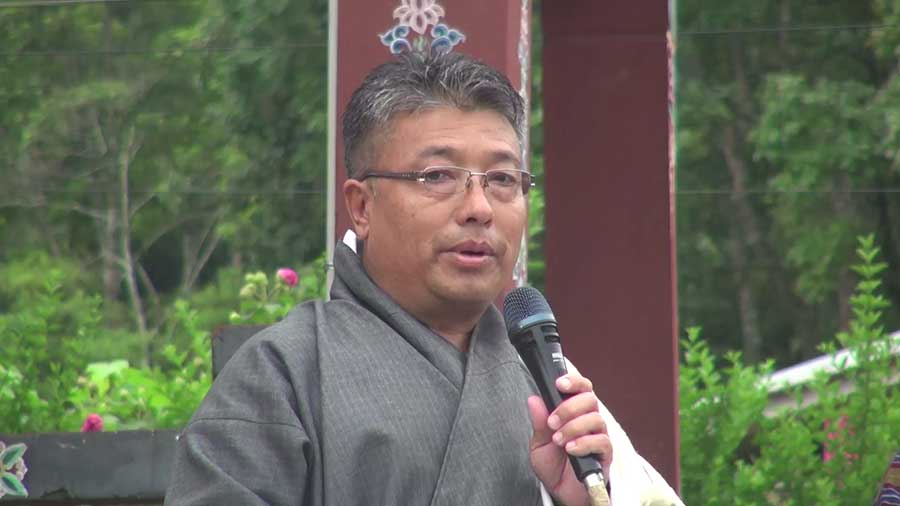
English guidebooks for students on writing short stories, essays, poems and letter writings are aplenty in bookstores across the country. That aside, they are virtually available. However, the situation is otherwise for Dzongkha guidebooks. They are literally non-existent on digital platforms as well as in the bookshops. So, a Dzongkha Teacher from Damphu Middle Secondary School in Tsirang released a Dzongkha Literature guidebook earlier this week.
Entitled “Tshom Rig Lhabjang,” the guidebook on Dzongkha Literature is user-friendly for students of fourth grade up to the undergraduates.
The book will help them to hone writing skills in Dzongkha essays, letters, and poems and even compose songs.
Though the guidebook was released publicly on Monday, the author completed writing it two years ago when on-campus learning had taken a backseat.
The book has come in handy for the students.
“It is very difficult to get online materials for the Dzongkha subject. Therefore, this book will be useful for us. I am fortunate to read the book,” quips one of the students of Damphu MSS, Kinga Tshering Penjor.
His friends are also happy that a guidebook on Dzongkha Literature is now easily available. Otherwise, any resourceful books about Dzongkha are rare to find in bookshops, school libraries and online.
“While going through this book, it has really inspired me. It also helps me how to write Dzongkha essays and poems. It even helped me to compose songs,” tells another student named, Rigden Karma Yangchen.
Others talk about similar benefits that the guidebook will bring to them.
“This book will help students in learning and writing Dzongkha without a teacher’s guidance. We can self-read the book at home to write short stories, essays and song lyrics,” says Dechen Choden, who also studies at Damphu MSS.

The author of the guidebook, Lopen Karma Dorji has almost three decades of experience in teaching Dzongkha. It is through these years of experience that motivated the author to develop such a guidebook on Dzongkha Literature.
“Availing of and reading this book during free time will help broaden your writing skills on eight different topics which are usually taught in the schools. This is because the book guides you with precise examples to understand easier when a teacher teaches students in the classroom. I have no doubt that our students will do better with help of this book,” says author Karma Dorji, who is the Dzongkha Teacher of Damphu Middle Secondary School.
According to him, more than 10,000 copies have been recently printed in Thimphu of which 2,000 have been brought to Tsirang.
The remaining 8,000 will be distributed within bookstores in the capital and other districts.
A copy of the guidebook costs Nu 350.
If proven useful for the students in the country, it will complement the efforts of the national language developers and other relevant agencies in promoting Dzongkha among the young population.
Pema Tshewang, Tsirang
Edited by Pema Lhaden




